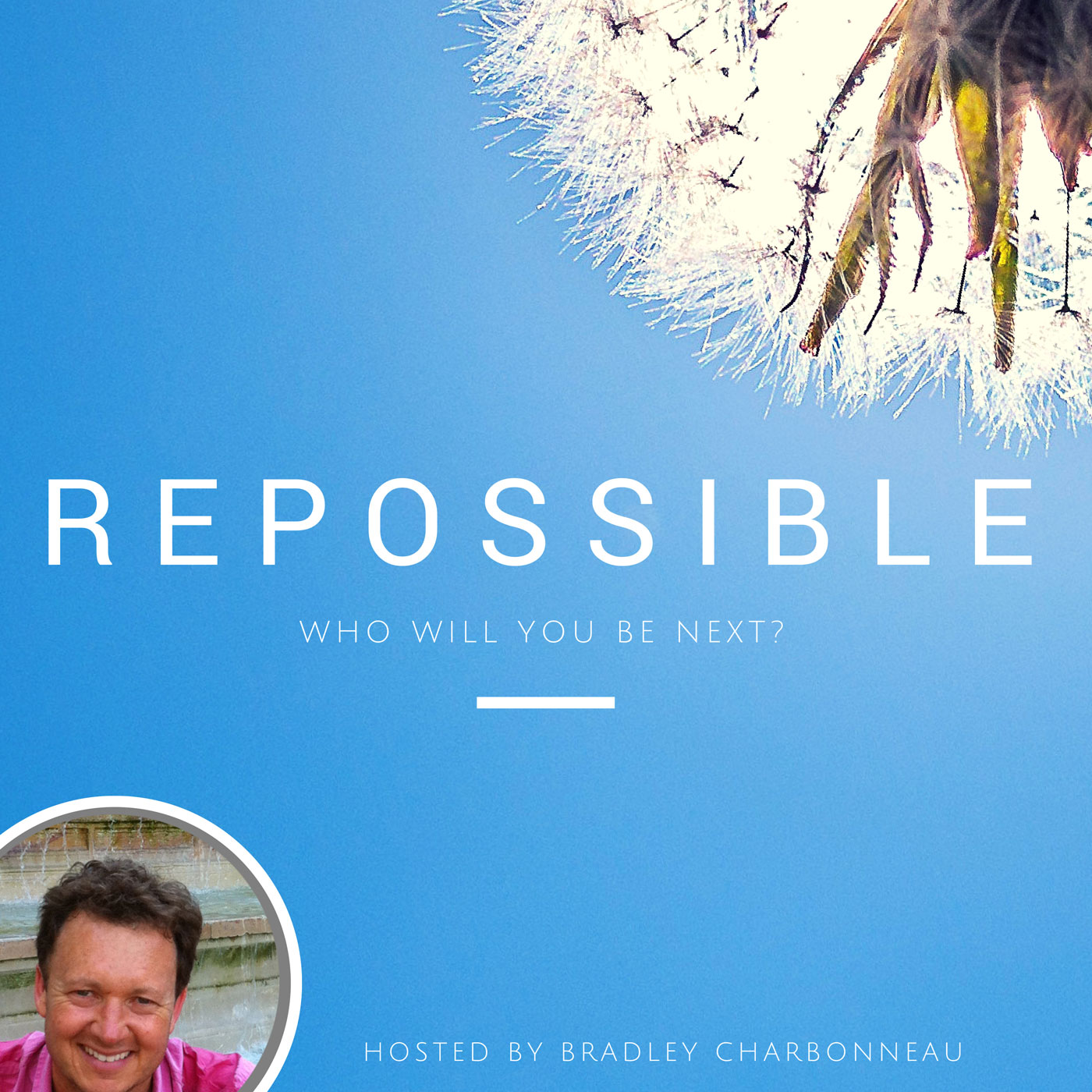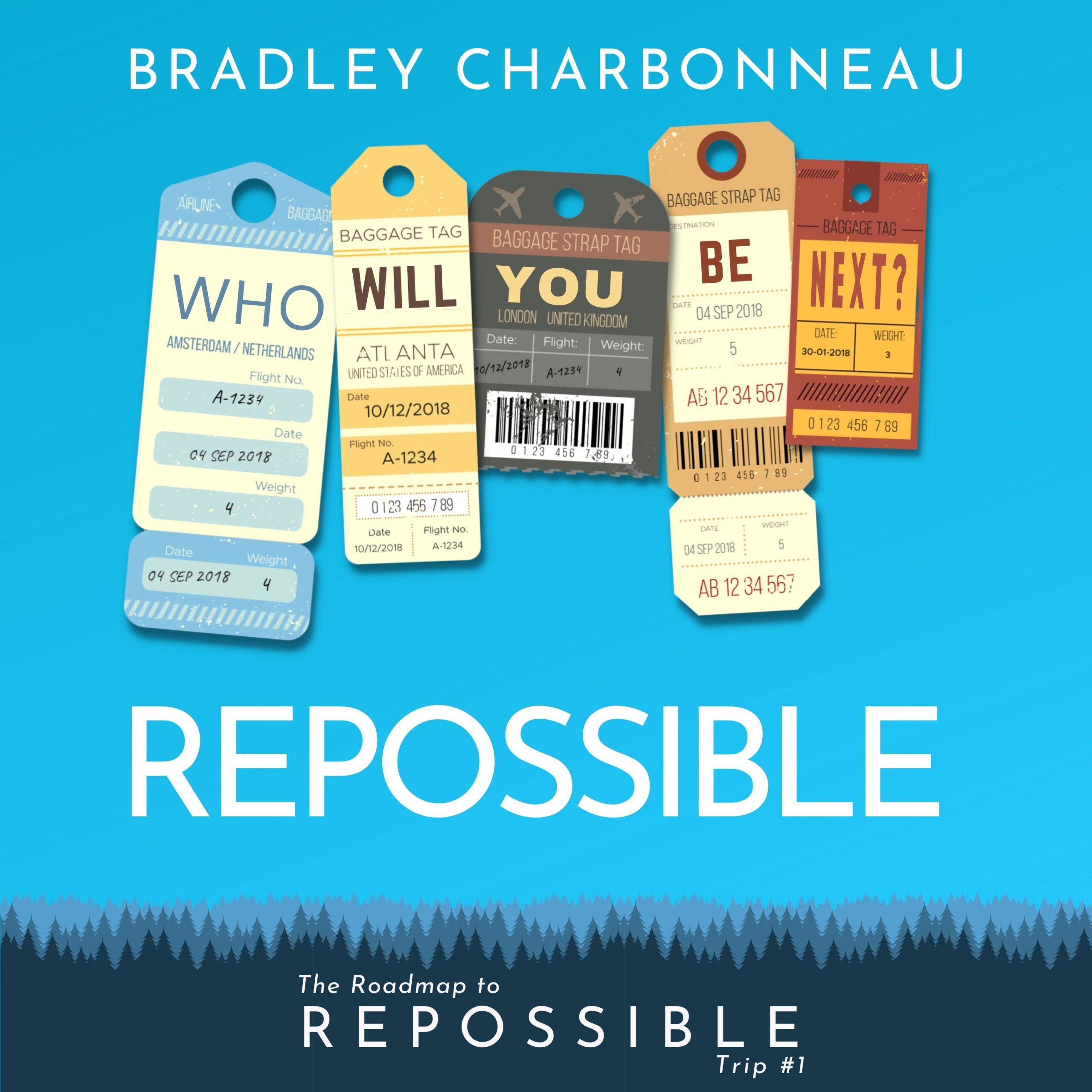Episode Transcript
[00:00:00] Speaker A: We all know that feeling, right? That moment when you're staring down. Some tasks could be big, could be small, and it just feels, well, hard.
[00:00:07] Speaker B: Oh, absolutely. Whether it's like finally tackling that inbox zero dream or maybe starting a whole new project, we all run into these hard things.
[00:00:16] Speaker A: Exactly. So today, here on the Deep Dive, we're going to dig into this a bit. We're looking at some thoughts from Bradley Charbonneau on this exact topic.
[00:00:25] Speaker B: Yeah, we've got some excerpts from his writing and also some audio clips from a piece.
[00:00:31] Speaker A: Our mission really is to try and pull out the practical stuff, the actionable insights from what he shared.
[00:00:36] Speaker B: Basically a shortcut for you. The goal is to distill these ideas, maybe find some surprising angles to help you figure out how to tackle whatever hard thing you might be facing.
[00:00:45] Speaker A: Right. So if you've got something on your mind, maybe a goal that feels daunting, a little out of reach. We're hoping this conversation brings some, I don't know, clarity and maybe some solid.
[00:00:57] Speaker B: Steps you can actually take, give you some footing.
[00:00:59] Speaker A: Okay, so where does Charbonneau start?
[00:01:01] Speaker B: Well, he kicks off with a really simple but pretty powerful statement.
We can do hard things.
[00:01:09] Speaker A: Just like that.
[00:01:10] Speaker B: Just like that. And it sounds simple. Yeah, but think about it for a second. That initial mental block we often hit when something feels difficult, just letting that freeze sink in. We can do hard things. That itself can be a huge first step, a kind of mental reframe.
[00:01:25] Speaker A: It's almost like giving yourself permission, isn't it, to even try.
[00:01:28] Speaker B: Exactly. It shifts the focus from this is impossible to. Okay, this is hard, but doable.
[00:01:34] Speaker A: Okay, so beyond just the mindset shift, what's one of the first, like, practical tips he offers?
[00:01:40] Speaker B: He talks about scheduling, actually putting the hard things on your calendar. Like making it a habit, a ritual.
[00:01:46] Speaker A: He uses his own example. Right. Recording a video every single day.
[00:01:49] Speaker B: Thursday, five years. Yeah. And what's interesting is he stresses that initially, at least, it wasn't about building an audience or anything external. It was the promise he made to himself, an internal commitment.
[00:02:02] Speaker A: So scheduling it makes it real, less optional.
[00:02:05] Speaker B: Totally. It transforms this vague idea, this I should do this hard thing someday, into a concrete action item. You assign it a time slot.
[00:02:14] Speaker A: Like an appointment.
[00:02:15] Speaker B: Exactly like an appointment. A non negotiable one, hopefully with yourself.
[00:02:18] Speaker A: Yeah.
[00:02:18] Speaker B: And that, well, that cuts down on the mental gymnastics, you know, debating, should I start now, maybe later.
[00:02:25] Speaker A: Yeah, that makes sense. It removes some of that decision fatigue right at the start.
[00:02:29] Speaker B: And thinking about those really big goals the ones that stretch out over months or years.
He has a perspective shift for that too.
[00:02:37] Speaker A: Okay.
[00:02:38] Speaker B: He mentions how that idea of five years of weekly videos felt. Well, pretty overwhelming. Who wouldn't feel that, right?
[00:02:44] Speaker A: Five years is a long time.
[00:02:46] Speaker B: But then he reframed it. What about committing to just one video a week, but only for a month?
[00:02:51] Speaker A: Ah, okay. Much less scary.
[00:02:53] Speaker B: Way less scary. Suddenly it feels achievable, doable. And you can see how that applies to almost any big project, right?
[00:03:00] Speaker A: Definitely break it down. Don't stare at the whole mountain. Just look at the first few steps.
[00:03:05] Speaker B: Exactly. If you connect that to like the psychology of it all. Breaking big tasks into smaller chunks is huge for motivation.
[00:03:14] Speaker A: How so?
[00:03:15] Speaker B: Well, each time you complete a small part, you get a little sense of accomplishment. A tiny dopamine hit, you know, okay.
[00:03:21] Speaker A: Yeah, the reward system, right.
[00:03:24] Speaker B: And that little reward fuels the next action. So it's not just about dividing the work, it's about kind of hacking your own brain chemistry to build momentum.
[00:03:34] Speaker A: So for you listening, what's that big project that feels intimidating? Could you maybe look at it as just a series of, say, one month sprints instead?
[00:03:42] Speaker B: It's a useful thought exercise for sure.
[00:03:44] Speaker A: Now, another thing that really jumped out at me was this idea of doing it for you.
[00:03:49] Speaker B: Ah, yes, the internal motivation piece.
[00:03:52] Speaker A: Charbonneau talks about his main drive for those videos being his own growth, the enjoyment of creating something.
[00:03:58] Speaker B: Yeah, he has this great line, something like, if your audience is yourself, you're always reaching your audience.
[00:04:03] Speaker A: I like that. It takes the pressure off, doesn't it? Needing external validation. Likes comments?
[00:04:08] Speaker B: Totally. And that's so crucial for sustainability. I think intrinsic motivation, when the reward comes from the process itself, the learning, the doing, the satisfaction. You're not dependent on outside factors, which can be fickle. Exactly. External validation is nice, sure, but it comes and goes. If you're doing it for yourself, you build this, this more resilient engine for just keeping going even when the results aren't perfect.
[00:04:35] Speaker A: Because they won't always be.
[00:04:36] Speaker B: Oh, for sure. Not every attempt is going to be a home run. But that internal drive, that commitment to the process, keeps you showing up. Consistency over perfection, which actually leads nicely.
[00:04:46] Speaker A: Into the next point. This idea of do it anyway, push through the resistance. He tells a story, right, about recording one of those videos in the pouring rain when he really, really didn't want to.
[00:04:58] Speaker B: Yeah, I remember that. It perfectly highlights acting. Even when you know motivation is low or the circumstances aren't ideal, or you just plain don't feel like It.
[00:05:05] Speaker A: We've all been there.
[00:05:06] Speaker B: Absolutely. And the contrast he draws is important. You can wait for the perfect moment, the right mood, the right weather, whatever.
[00:05:13] Speaker A: Which often never comes right.
[00:05:15] Speaker B: Or you can just act. And his point is, the only guaranteed failure comes from not trying at all, not hitting publish, not taking the step.
[00:05:25] Speaker A: Even if the result isn't like your best work ever.
[00:05:29] Speaker B: Even then. Because the act of pushing through, even when it's uncomfortable, it builds something. Mental toughness, maybe. It reinforces the habit. It makes the resistance a little bit weaker next time.
[00:05:40] Speaker A: It chips away at it.
[00:05:42] Speaker B: Yeah, chips away. Good way to put it.
[00:05:44] Speaker A: So this naturally brings up willpower.
[00:05:46] Speaker B: Yeah.
[00:05:46] Speaker A: Is it all about just gritting your teeth?
[00:05:49] Speaker B: Well, there's a lot of debate about willpower. You know, is it finite? Is it a muscle? But Charbonneau's take seems to be that. Yes, it's definitely important, especially right at the beginning, that initial hurdle, that initial inertia. Think of it like trying to push a really heavy box that's just sitting there.
[00:06:05] Speaker A: Okay.
[00:06:06] Speaker B: It takes a big initial shove to get it moving at all. Right. More force than just keeping it rolling once it's going.
[00:06:11] Speaker A: Gotcha. So willpower's that first big push.
[00:06:13] Speaker B: That's how he seems to frame it. While maybe the long term effort relies more on habit and that momentum we talked about, you often need that burst of willpower just to overcome the hoog. I don't wanna. And get started.
[00:06:25] Speaker A: And he uses that rocket ship analogy, which I thought was great.
[00:06:28] Speaker B: Oh yeah, the rocket ship. Explain that one.
[00:06:30] Speaker A: Well, the idea is that a rocket uses a massive, like a disproportionate amount of its fuel just in the first few minutes.
[00:06:35] Speaker B: Right. Just for liftoff. To break free from Earth's gravity.
[00:06:39] Speaker A: Exactly. And starting something hard often feels like that. It requires this huge initial burst of energy of willpower to overcome the gravity of procrastination or resistance.
[00:06:51] Speaker B: That's a perfect analogy. That feeling of, ugh, I really don't want to start this. That is the gravity pull. Willpower is the booster rocket fuel you need Right then.
[00:07:00] Speaker A: But the key part, and this is encouraging.
[00:07:03] Speaker B: Yeah.
[00:07:03] Speaker A: Is that once you're off the ground, once you're in orbit, so to speak.
[00:07:08] Speaker B: You don't need nearly as much thrust.
[00:07:10] Speaker A: Right. The energy required to just keep going is considerably less.
[00:07:14] Speaker B: That's the momentum kicking in. Once you've built up a little speed, a little forward movement, it just gets easier to maintain it.
[00:07:21] Speaker A: The hard thing maybe doesn't feel quite so massive anymore.
[00:07:24] Speaker B: Exactly. The inertia is Working for you now, not against you.
[00:07:28] Speaker A: So how do we help ourselves get through that initial high energy launch phase?
[00:07:34] Speaker B: Good question. And Shrabno brings up something crucial here. An accountability partner.
[00:07:39] Speaker A: Ah, okay. Having someone else involved.
[00:07:41] Speaker B: Yeah, he even mentions his dog, Pepper, which is kind of funny, but it makes the point.
[00:07:47] Speaker A: So it doesn't have to be super formal.
[00:07:49] Speaker B: Doesn't seem like it needs to be. It could be a friend, a colleague, maybe you join an online group, or even just telling someone, hey, I'm planning to do X this week.
[00:07:57] Speaker A: What does that do psychologically?
[00:07:59] Speaker B: It introduces a bit of external expectation, or maybe just encouragement, knowing someone else is aware. Maybe someone might ask you about it later, they can provide that little extra nudge you need.
[00:08:12] Speaker A: Makes sense. Yeah, you don't want to let them down. Or even just yourself in front of them.
[00:08:16] Speaker B: Right. And speaking of making things easier, he also touches on constraints, specifically time limits.
[00:08:23] Speaker A: Like his less than 10 minutes rule for the videos.
[00:08:26] Speaker B: Exactly that. It sounds counterintuitive. Maybe. Wouldn't more time be better? But sometimes having a boundary, a time.
[00:08:32] Speaker A: Box, actually makes it less daunting.
[00:08:34] Speaker B: Yes, it makes the task feel more manageable. Okay, I just need to focus on this for 10 minutes.
It can surprisingly boost your focus and sometimes even your creativity. Less time to overthink, just get it.
[00:08:46] Speaker A: Done within the limit.
[00:08:48] Speaker B: And all these things, scheduling, breaking it down, the willpower push, accountability, constraints, they all contribute to building that momentum we mentioned.
[00:08:57] Speaker A: Which just makes it easier to keep going once you've started.
[00:09:00] Speaker B: Precisely.
[00:09:01] Speaker A: Okay, one last tip that seems really important, especially for motivation. He talks about tiny wins.
[00:09:06] Speaker B: Ah, yes, celebrating the small stuff.
[00:09:09] Speaker A: So even just finishing that short video, maybe it didn't feel world changing, but acknowledging that you did it, it's vital.
[00:09:15] Speaker B: These little acknowledgments, they act as positive reinforcement, like little check marks in your brain saying, see, you're making progress.
[00:09:23] Speaker A: I mean, if it's tiny, progress.
[00:09:24] Speaker B: Even if it's tiny, it builds up your sense of competence, your belief that you can do this. It makes the whole journey feel less like a giant impossible climb and more like, well, a series of manageable steps.
[00:09:37] Speaker A: And looking back, reflecting on, wow, I really didn't want to do that, but I did and now it's done. That feeling itself can be pretty motivating for the next time. Can it?
[00:09:46] Speaker B: Absolutely. That feeling of accomplishment, however small, is fuel.
[00:09:49] Speaker A: So, okay, wrapping this up, let's circle back to that core message. It seems simple, but it's worth repeating.
[00:09:57] Speaker B: Say again?
[00:09:58] Speaker A: You can do hard things. You listening right now? You Absolutely can.
[00:10:01] Speaker B: So maybe take a second now. Think about that specific hard thing that's been on your mind. How could some of these ideas we've talked about apply?
[00:10:10] Speaker A: Could you schedule just a small block of time for it this week, even 15 minutes?
[00:10:14] Speaker B: Could you break it down instead of thinking about the whole thing? What's just the very first step? Or maybe commit to just one small piece for the next month?
[00:10:23] Speaker A: And what motivates you, not someone else but you. How can you tap into that intrinsic drive?
[00:10:29] Speaker B: Remember, that initial push might take some real willpower, the rocket launch. And maybe think who could be your accountability pepper, even just texting a friend your intention.
[00:10:41] Speaker A: And please don't forget to acknowledge those tiny wins along the way. Finishing one small step is a win.
[00:10:47] Speaker B: It really is.
[00:10:48] Speaker A: So here's a final thought for you to maybe mull over today.
[00:10:50] Speaker B: Okay?
[00:10:50] Speaker A: What's one tiny, super small but consistent action you could take, maybe even today, towards that hard thing and actually would build just a little sliver of forward momentum?
[00:11:00] Speaker B: Just one small thing. You've definitely got the capacity. You can do it.
[00:11:04] Speaker A: You'll make it happen.


